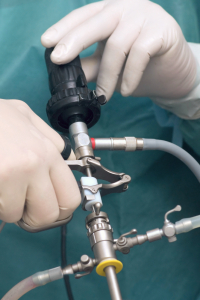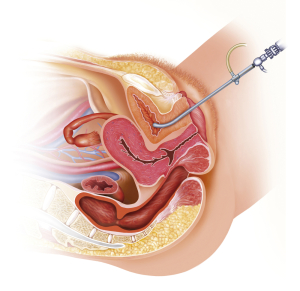In the first place, a thorough work-up is needed to come to an accurate diagnosis using bladder cancer diagnostic tests. Moreover, once the family physician has noticed blood in the urine and there is a suspicion of bladder cancer, a quick referral to a urologist should be made. Likewise, the specialist will do a number of tests aimed at determining where the blood is coming from. In the case of bladder cancer the specialist will also want to determine the extent of it. Here is a list of tests that likely will be done (see below).
Diagnostic tests for bladder cancer
_________________________________________
urine cytology
cystoscopy
bimanual examination
adequate biopsy of cancer and punch biopsy of other sites
CT scan of entire urinary tract
bone scan
chest X-rays
ultrasonography or MRI scan
CT scan of abdomen and pelvis
genetic tests
_________________________________________
Explanation what these tests are designed to do
With this in mind, here is what these tests are designed to do: The urine cytology helps the urologist to know whether or not there are cancer cells present in the urinary tract. Also, after successful removal of one lesion it might indicate whether or not there are other lesions in addition in the urinary tract.
Specifically, using cystoscopy the specialist can look into the bladder and do procedures such as biopsies and remove smaller cancers or polyps. In addition, bimanual examination, rectal examination and all the other tests such as CT scans, bone scans, MRI scans and ultrasonography will tell the urologist how widespread the cancer is. This is important to know as the final outcome (“prognosis”) is determined by the extent of the disease (“stage”) at the time the cancer was initially diagnosed. To clarify, as treatments vary for different stages of cancer, it makes sense to carefully investigate first at what stage the bladder cancer is.
Other pathological tests
There is another test that the pathologist may consider to do. This is a genetic test looking for chromosomal abnormalities in the cancer tissue. For instance, in Ref. 3 the authors showed that there is a link between chromosome 9 anomalies and the recurrence of superficial bladder cancer.
Often patients are annoyed or angry after a cancer diagnosis. Unfortunately the physician must order a few more tests prior to treatment.
Patience before bladder cancer treatment leads to better results
This is understandable from the patient’s point of view who wants to get on with it and have it treated. From the urologist’s and oncologist’s point of view, however, one has to know what kind of cancer it is, low grade or high grade; what is the spread of it, is it in the pelvic lymph glands, in the lymph glands beside the aorta (called “paraaortic lymph nodes”), or are there even lung metastases. In the one case there might have to be surgery first followed by radiotherapy. In another case the urologist likely would decide to use combination chemotherapy first followed by radiotherapy. These decisions have far reaching implications for long-term survival and cannot be made lightly. The physician can offer best results to the patient when he collects all of the evidence about the cancer first and develops a strategy of therapy.
References
1. Cancer: Principles&Practice of Oncology. 5th edition, volume 1. Edited by Vincent T DeVita, Jr. et al. Lippincott-Raven Publ., Philadelphia,PA, 1997.
2. Cancer: Principles &Practice of Oncology, 4th edition, by V.T. De Vita,Jr.,et al. J.B. LippincottCo.,Philadelphia,1993.Chapter 34, page 1054 (data from text arranged as a table).
3. M Simoneau et al. Oncogene 2000 Dec 19(54): 6317-6323.
4. G Dalbagni , HW Herr Urol Clin North Am 2000 Feb 27(1): 137-146.
5. HW Herr J Clin Oncol 2001 Jan 1;19(1): 89-93.
6. DA Corral, CJ Logothetis World J Urol 1997; 15(2): 139 – 143.
7. PM Dodd et al. J Clin Oncol 1999 Aug;17 (8): 2546- 2552.
8. B. Sears: “The age-free zone”.Regan Books, Harper Collins, 2000.
9. Conn’s Current Therapy 2004, 56th ed., Copyright © 2004 Elsevier
10. Ferri: Ferri’s Clinical Advisor: Instant Diagnosis and Treatment, 2004 ed., Copyright © 2004 Mosby, Inc








